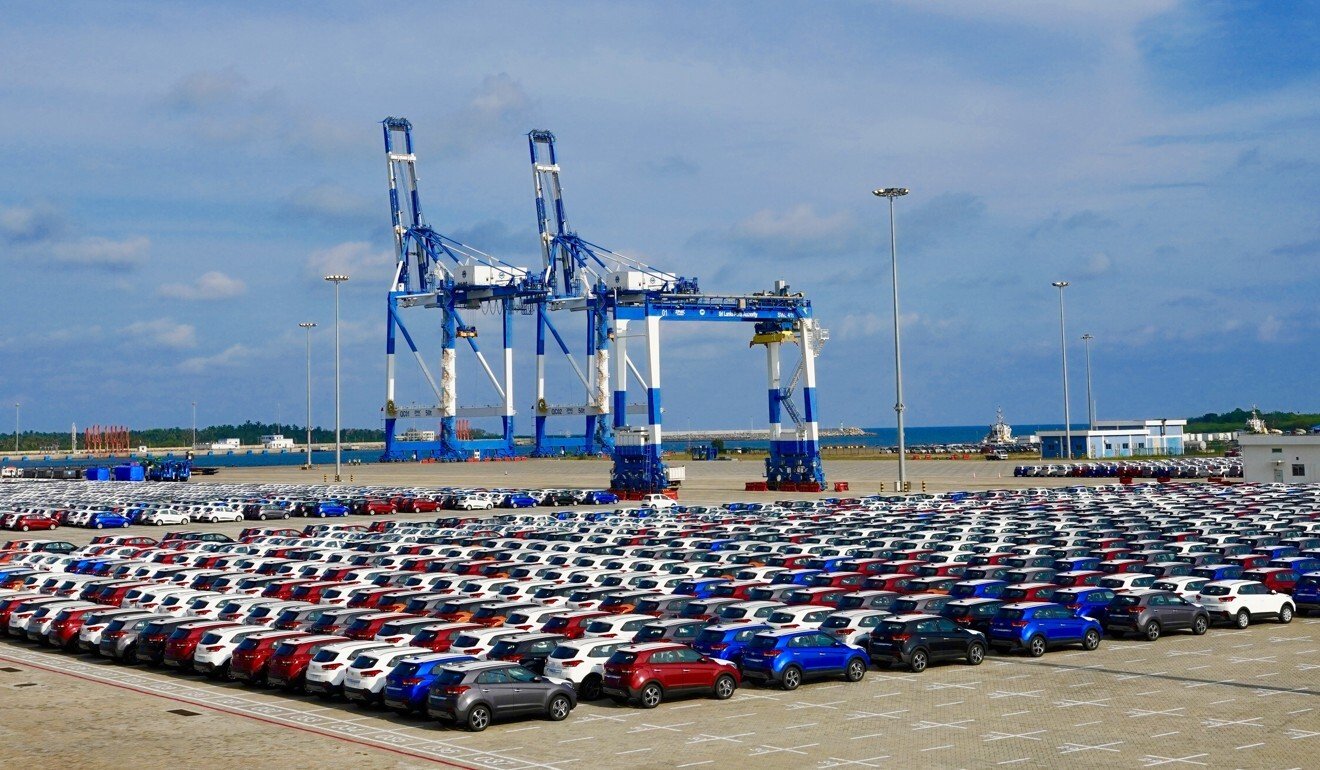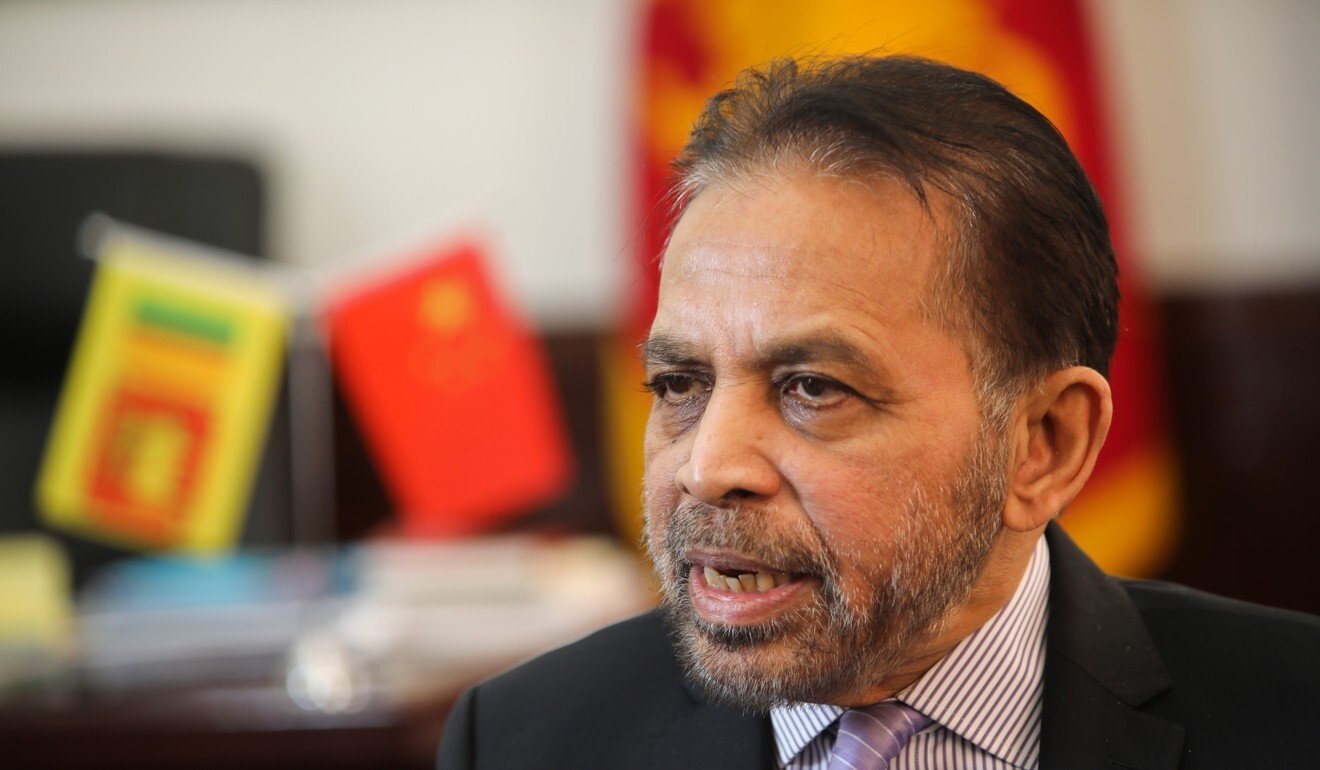
Sri Lanka’s ambassador to China has dismissed suggestions the South Asian country is planning to extend a 99-year lease it granted to Beijing to run Hambantota port.
Palitha Kohona said in an interview that his country would “never be an unsinkable aircraft carrier posing a threat to anyone else”, referring to China’s ongoing power struggles with the United States and India.
Hambantota’s location at the southern tip of Sri Lanka, overlooking South Asia’s vital sea lanes, makes it a potential key maritime hub in the Indian Ocean. Colombo agreed to hand over the running of the port in 2017 when it was unable to make the repayments on the Chinese loans used to develop it.
“If there is a negotiation, it’s very secretive and nobody would say it to you. They are whispering to each other so that nobody else hears it,” Kohona said.
He was responding to a question about reports that Sri Lankan President Gotabaya Rajapaksa was revisiting the deal with China.
“No, I think it’s absolutely rubbish,” he said.

Beijing also denied the deal was being reviewed, with Chinese foreign ministry spokesman Wang Wenbing saying the port’s operations were expanding.
Funded and built by Chinese companies, the Hambantota project has been a focus for critics who accuse China of using “debt-trap diplomacy” to boost its geopolitical influence around the world.
Sri Lanka has relied heavily on foreign capital for infrastructure development and there are concerns it will be unable to meet its repayments due to the damage caused to its tourism industry by the coronavirus pandemic.
Kohona, however, dismissed suggestions Sri Lanka was falling into a debt trap.“I’m saying very responsibly and without any reservation that Sri Lanka’s debt to China is less than 10 per cent of our entire debt and we can’t get into a trap. The rest of our debt is owed to multilateral institutions, to Wall Street and to others,” he said.
“In almost every situation, China did not come to Sri Lanka and say, here’s money, take it. We went to China and asked for the money. “It must be a little senseless for a country to get itself into a debt trap … we’ve carefully judged what we needed. When we asked others, they were not ready to give it. So we went to China.”
China had provided financial support to help Sri Lanka “get over this difficult period”, Kohona said.
Sri Lanka recently negotiated a US$500 million loan from China Development Bank and a US$180 million loan from the Beijing-headquartered Asian Infrastructure Investment Bank. The two countries have also agreed a US$1.5 billion currency swap.“It’s also very important to remember that no project starts producing returns immediately,” Kohona said. “It takes time. People have to get used to the idea and investors have to get used to the idea.”
India – with which China remains in a bloody border dispute in the Himalayas – is among the countries that have expressed concern over China’s infrastructure developments in and around the Indian Ocean, which besides Hambantota, include a port on Sri Lanka’s west coast, Gwadar port in Pakistan and Kyaupkpyu port in Myanmar.
Indian Prime Minister Narendra Modi last week joined his counterparts from the United States, Japan and Australia at a leaders meeting for the Quadrilateral Security Dialogue, an informal alliance set up to counter China’s expansion in the region.
US Secretary of Defence Lloyd Austin on Friday began a three-day trip to India after earlier visiting Japan and South Korea alongside US Secretary of State Antony Blinken. The trip to New Delhi would help to “foster deterrence against China”, Austin said.
Despite the tension between Delhi and Beijing, Kohona said Sri Lanka would not take sides. “We can’t deny that there is a perception of rivalry between India and China. Maybe there is a rivalry,” he said. “But Sri Lanka has experience with internal conflict, has experience with foreign invasions … and it is not in the mood at this stage to lend its territory for anybody else’s to achieve goals, their goals.”
Sri Lanka and China were also keen to finalise talks on the creation of a free-trade agreement between the two countries that had been going on since 2014, Kohona said.
“The Chinese are pushing us to conclude the FTA as soon as possible,” he said. “I think the resistance is in our business community, which is concerned that opening up to China might result in our industries getting swamped. It all depends on how we negotiate our FTA with China and we should negotiate it in such a way that it produces mutual benefits rather than benefits for one side.”(scmp)